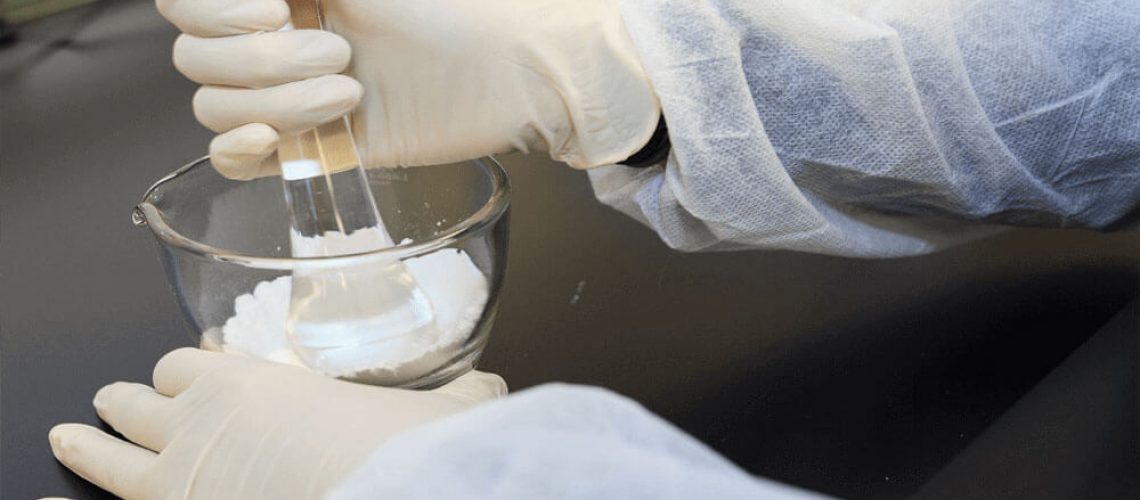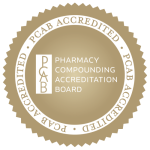Here is a true story. A couple of years ago, I got a phone call from a doctor and she said, “Why did you charge an insurance company $100K for my patients’ compounded prescriptions last week?” to which I replied – “Let me check and see how many scripts we’ve filled for your patients.” When I went back to my computer system, I found we billed significantly less than what the doctor was saying.
So, I asked her – “Did all of your patients fill their compounded prescriptions at our pharmacy?”
She mentioned that she also referred her patients to another compounding pharmacy besides us. When she checked with the other pharmacy, it turned out they had billing practices that were not in line with the usual and customary pricing and were charging at least $5000 to the insurance company for every prescription going out the door! The other pharmacy, it turns out, was also not PCAB accredited.
The insurance company requested that the doctor submit supporting documentation. Pharmacy Benefit Manager (PBM) also suspended that pharmacy from their network at that time. In addition, the doctor immediately stopped recommending that pharmacy. I now have a positive relationship with the doctor, her staff and especially the patients we have helped over the years. My goal is help prescribers get safe, reliable and affordable custom therapy for their patients, always remembering do no harm – not just to the patient but also to the prescriber’s practice!
Let’s analyze the story a bit in relation to compliance being a sexy proposition for the prescriber. Remember: when treating a patient, a prescriber will directly or indirectly collaborate with a pharmacy. When using a compounding pharmacy, the collaboration is stronger and more direct. The prescriber and the pharmacist will work as “partners” with the goal of providing customized treatment options to the patient. Here are a few questions and answers:
Question 1: Why is it important for you to have a reliable, trustworthy, and compliant compounding pharmacy as your closest professional business partner when providing individualized treatment options for your patients?
Answer 1: A compliant compounding pharmacy partner is vitally important because in the doctor-pharmacist-patient triad, the first two parties have one goal in mind – treating the patient. If one of the partners is non-compliant, it can negatively affect and have legal consequences for both practices. The third party is the patient– compliance provides the foundation for both partners to build a long-term relationship for the benefit of the patients being treated.
Question 2: What makes a compounding pharmacy reliable, trustworthy and compliant?
Answer 2: Maintaining the highest standards in professionalism and ethical business practices.
This is accomplished through compliance. Let us look at a few elements of a good compliance program for a 503A designated compounding pharmacy facility. A 503A facility:
- prepares patient-specific, customized medications based on a doctor’s prescription
- has specially allocated space for compounding only
- has specially trained staff in preparing compounded medication preparations and dosage forms
- has the special tools and equipment necessary for compounding
- uses the highest quality active pharmaceutical ingredients sourced from FDA approved and GMP regulated facilities
Question 3: How important is it for a compounding pharmacy to have PCAB accreditation and why you should look for one that is PCAB accredited?
Answer 3: If board certification is important for your practice and patients, PCAB (Pharmacy Compounding Accreditation Board) accreditation brings the same value to an individual compounding pharmacy. PCAB only accredits compounding pharmacies that meet very stringent quality criteria in all aspects of business practices in the field of compounding. Currently, there are still a limited number of PCAB accredited pharmacies – only about 1% of all pharmacies nationwide.
Question 4: Who ensures proper and ethical billing practices for compounded medications?
Answer 4: PersonalMed is an organization that audits compounding pharmacies for this specific purpose. At the end of a successful on-site audit, they award the compounding pharmacy a coveted credential – cCERT – this certification shows that the pharmacy is compliant with not only the highest standards in preparing medication through the PCAB accreditation, but also has the highest standards in ethical billing practices. There are only 150 pharmacies nationwide that have this certification currently.
Conclusion: Your partnerships are very important in providing the best treatment outcomes for your patients and for the longevity and success of your practice. A good prescriber-pharmacist partnership protects both practices and in-turn the patients they serve. You are who you associate with. #PersonalMed #PCAB #cCert #compoundingpharmacy
Special thanks to Nurten Rasid, MD and Matthew Bernstein, PharmD for their editorial assistance with this article.




